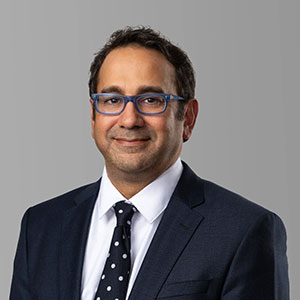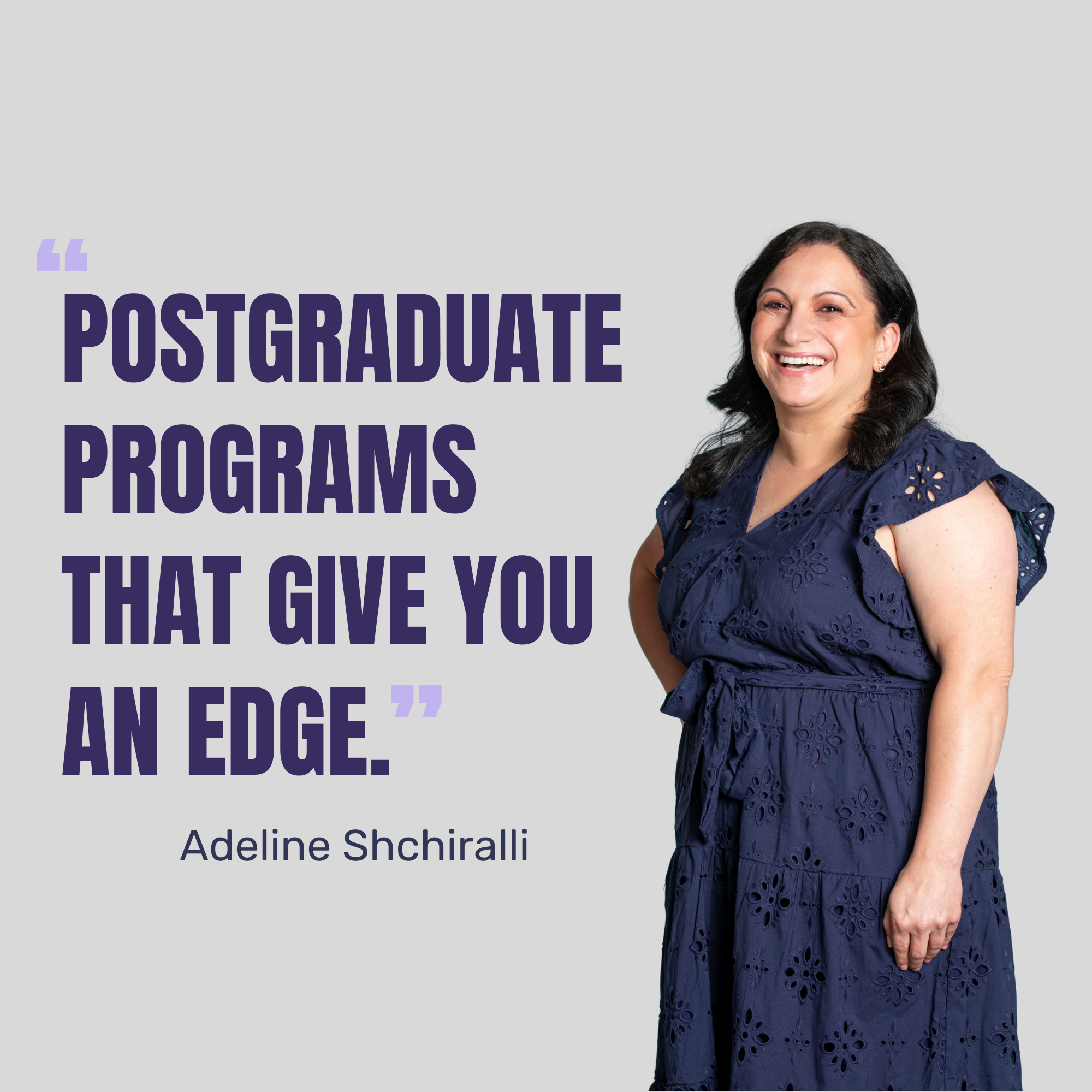IT OPENS DOORS TO YOUR 'WHERE'S NEXT'
When you’re busy running a practice or managing client matters, postgraduate study can feel like a luxury. But for two experienced lawyers (Adeline and Crispian) it became a practical step that not only sharpened their legal skills but opened new doors.
Both now teach in the College of Law’s Master of Laws (Applied Law) program referred to as LLM, and both started in the same place: looking for something more than just another qualification.

WHY THEY CHOSE THE COLLEGE OF LAW
For Adeline, already practising in wills and estates, the motivation was clear. She was planning to pursue specialist accreditation and wanted a program that could build the knowledge she needed and fill the gaps in areas she hadn’t yet encountered in practice.
“I looked at other institutions,” she said, “but the College’s practical focus made all the difference. I wasn’t interested in research-heavy theory. I wanted something I could apply in my work the next day.”
Crispian, a Queensland-based family lawyer, saw his Master of Laws as an investment in his future. He wanted to deepen his expertise, broaden his understanding of the law, and enhance the way he served clients.
“I wanted to be ready for anything family law could throw at me. The LLM helped me do that...and more.”

WHAT MADE THE DIFFERENCE
The College of Law’s programs are designed for working lawyers. That means online delivery, manageable workloads, and assessments based on real-world legal tasks - not exams or academic essays.
Lecturers are practising professionals, and subjects are grounded in the realities of legal practice. Adeline and Crispian both said that the program’s structure gave them the flexibility to keep working while studying and the support to succeed.
More than that, they found a professional community. “Even though it was online, I built strong relationships,” said Adeline. “We still keep in touch years later. We refer work to each other. It’s a great network to have.”

WHERE IT TOOK THEM
Since completing their LLMs, both have gone on to significant career milestones. Adeline became an Accredited Specialist, joined multiple Law Society committees and now teaches in the very program she once studied.
Crispian became a partner, an adjunct lecturer, an oral assessor, and the author of key family law practice papers following the court system reforms. He has now completed a second Master of Laws and launching a mediation practice.

IS IT WORTH IT?
If you’re looking for a master’s degree that builds your career, not just your academic record - their answer is clear.
“I can’t speak more highly of the program,” said Adeline. “It gave me the confidence to step up and the tools to do it well.” Crispian agrees. “It’s not just a degree. It’s a launchpad.”
WHEN YOU'RE READY, WE'RE HERE TO HELP
Contact us or book a call to chat about your options or explore our Postgraduate Programs to find the right fit for you.
FREQUENTLY ASKED QUESTIONS
Yes. A Master of Laws (Applied Law) can boost your career prospects, increase your earning potential, and set you apart. It is valued by employers, clients, and professional bodies. Read more in our article: What’s the ROE (Return on Education) of the Master of Laws LLM?
An LLM can help you gain expertise in areas such as family law, wills and estates, commercial litigation, or in-house practice. Graduates often step into leadership roles, progress towards specialist accreditation or broaden their client base.
Yes. The College of Law’s program is designed for practising lawyers. Delivered fully online, with flexible pacing and applied assessments, it fits around work and life commitments.
Our LLM is practical and applied. Instead of research essays, assessments are based on real-world legal tasks, so everything you study can be used directly in practice.
You can begin with a Graduate Certificate (two subjects) or a Graduate Diploma, then build toward the full Master of Laws at your own pace. This flexible pathway lets you test the waters before committing fully.

